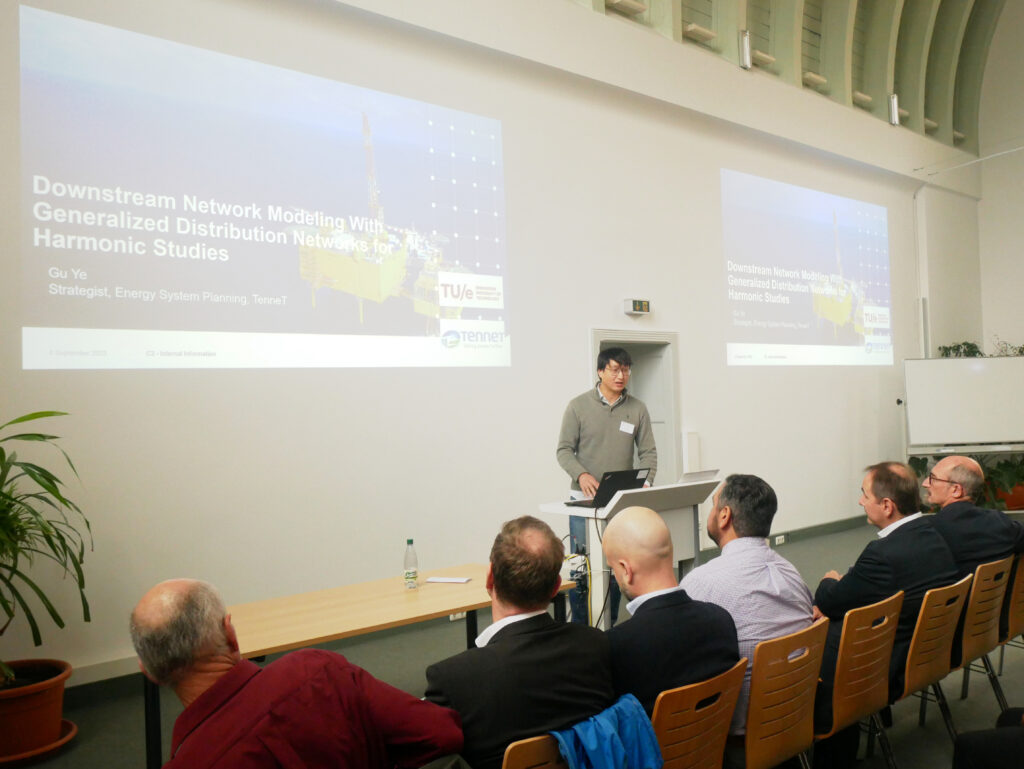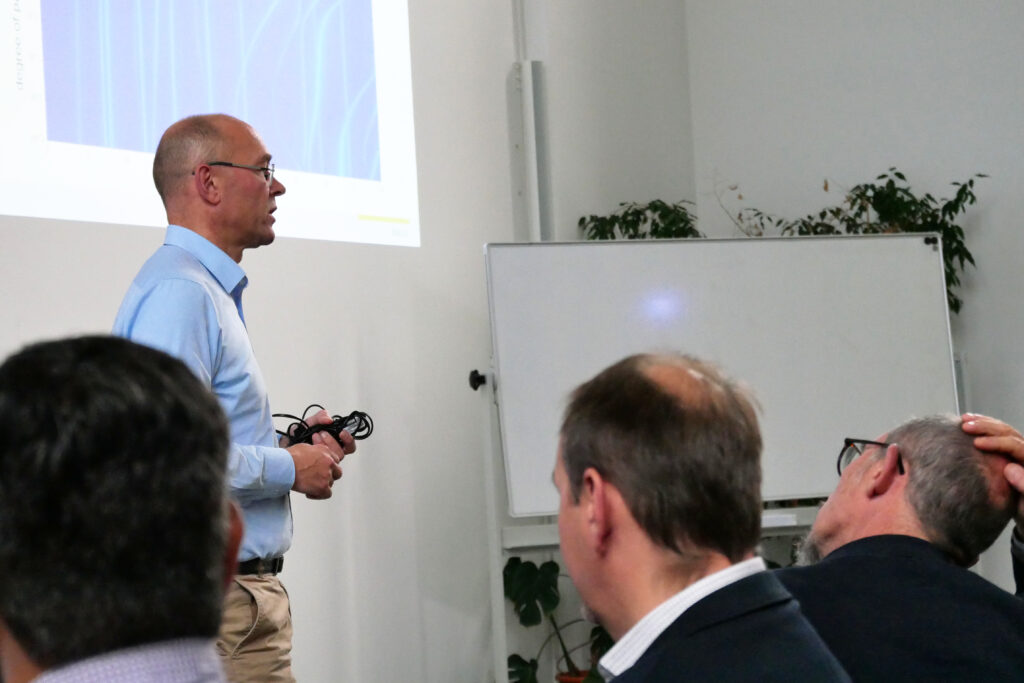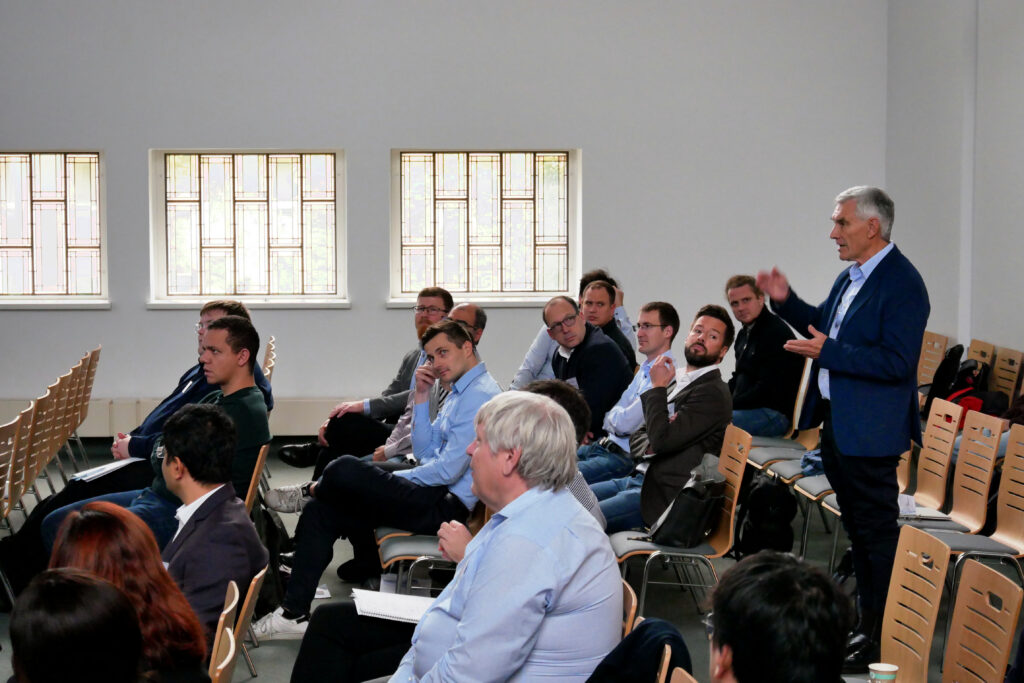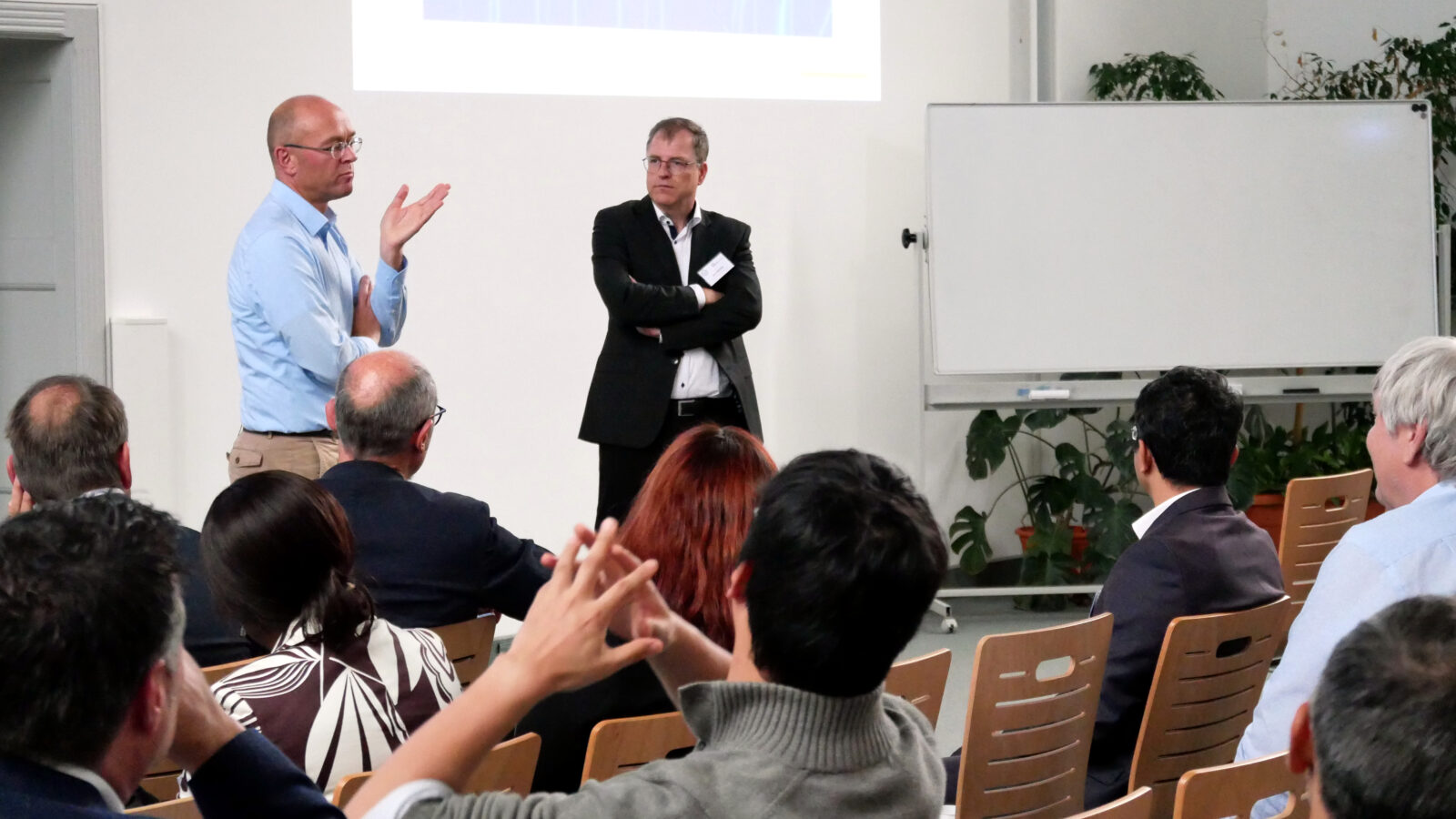On invitation of the transCampus research group around Jan Meyer and Grazia Todeschini an expert community of academics and industry representatives from many different countries came together for a two days’ workshop in Dresden in November. The participants engaged in a lively discussion about the importance of reliable harmonic studies in transmission systems. Reliable harmonic studies have become increasingly important for transmission system operators. Evaluating the impact of new inverter based resources connections, the increasing effect of cabling on harmonic impedance (resonances), and harmonic disturbance levels are just some examples.
The joint workshop of academia and industry offered the opportunity for an open exchange on the requirements for scientific studies and modelling, the applicability of standardised guidelines, and the actual challenges in implementation. One of the challenges is the realistic representation of frequency-dependent impedance of networks and customers connected downstream to the transmission system. This particular aspect is the subject of a collaborative project between King’s College London and Technische Universität Dresden. It compares the current practice and state of the art in the UK and Germany in order to improve the harmonic studies in both countries.
Results and findings of the project were discussed in the two workshop sessions that followed the speaker sessions which addressed topics such as the impact of increase cabling (Lutz Hofmann, Hannover), IEC standardisation (Mark Halpin, Auburn University), and the US experience in modelling transmission systems (Gaurav Sing, EPRI). This was the second workshop after a first meeting in London in May 2023, hosted by Grazia Todeschini’s group Sustainable Power and Renewable energy INTegration (SPRINT). Learn more.
Picture credits: Maike Heber, TUD.





